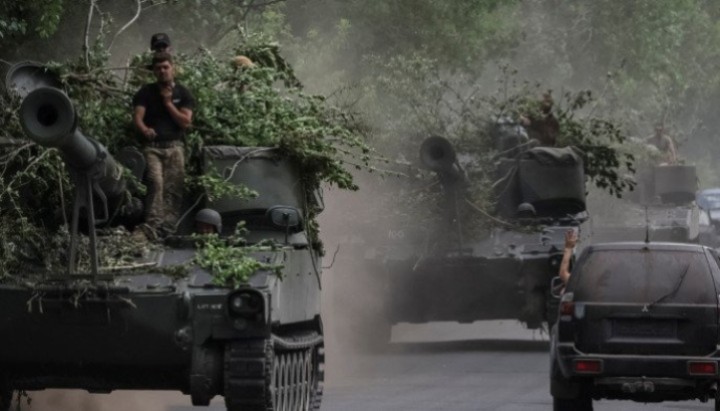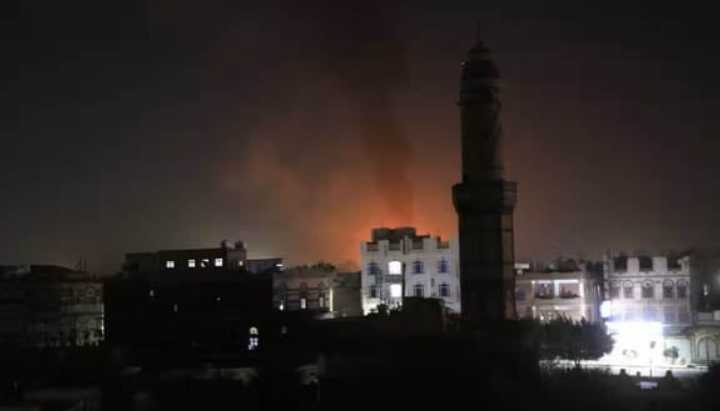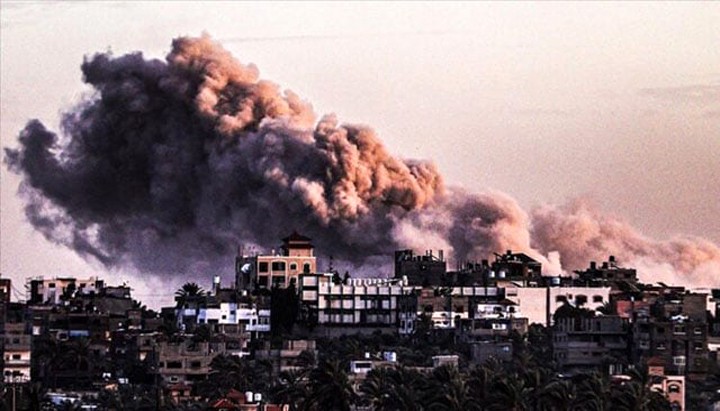Is it better to
engage with Russian President Vladimir Putin over his invasion of Ukraine or to
isolate him? Should Kyiv make concessions to end the war, or would that
embolden the Kremlin? Are ramped-up sanctions on Russia worth the collateral
damage?
These are some of the questions testing the international
alliance that swiftly rallied around Ukraine in the days after the Russian
invasion but that, three months into the war, is straining, officials and
diplomats told Reuters.
As Western governments grapple with spiralling inflation and
energy costs, countries including Italy and Hungary have called for a quick
ceasefire. That could pave the way for scaled back sanctions and end the
blockade of Ukrainian ports that has worsened a food security crisis for the
world's poorest.
Yet Ukraine, Poland and the Baltics warn that Russia is not
to be trusted and say a ceasefire would enable it to consolidate territorial
wins, regroup and launch more attacks down the line.
The Russians have "spread the narrative that this would
be an exhausting war, we should sit around the table and seek consensus,"
a senior Ukrainian official told Reuters.
US Secretary of Defence Lloyd Austin has said he wants
Russia "weakened" and President Joe Biden called for Putin to be
prosecuted for war crimes. British Prime Minister Boris Johnson says Kyiv must
not be strong-armed into accepting a bad peace deal and that Ukraine "must
win".
Germany and France have remained more ambiguous, vowing to
stop Putin from winning rather than to defeat him, while at the same time
backing tough new sanctions.
"The question being asked is whether we return to the
Cold War or not. That's the difference between Biden, Johnson and us," an
ally of French President Emmanuel Macron told Reuters.
Russia launched what it calls a "special
operation" in Ukraine in February, saying it was needed to rid the country
of dangerous nationalists and degrade Ukraine's military capabilities - aims
the West denounced as a baseless pretext.
Moscow has since argued that military support from
Washington and allies is dragging out the war and deterring Ukraine from peace
talks. In March, the Kremlin demanded Ukraine cease military action, change its
constitution to enshrine neutrality, acknowledge Crimea as Russian, and
recognise eastern separatist-held areas as independent states as a condition
for peace.
The Ukrainian and French sources, and officials in other
countries consulted by Reuters for this story, requested anonymity in order to
speak freely about sensitive diplomatic and security policies.
Divisions could become more pronounced as sanctions and the
war take a toll on the global economy, risking domestic backlashes and playing
into Putin's hands.
"It was clear from the start it is going to get more
and more difficult over time - the war fatigue is coming," Estonian Prime
Minister Kaja Kallas said in an interview with CNN.
"There may be difference between those countries who
have much better neighbours than we do, and those who have a different history
like us, the Baltic countries, and Poland."
DEALING WITH MISTER PUTIN
Macron has warned any peace should not "humiliate"
Russia like it did for Germany in 1918.
He, like German Chancellor Olaf Scholz, has kept channels of
communication with the Kremlin open, triggering consternation in more hawkish
countries. Poland's president compared the calls to speaking with Adolf Hitler
during World War Two.
"We'll have to deal with Mister Putin at some point,
unless there's a palace coup. And even more so because this war needs to be as
short as possible," the Macron ally said.
Scholz said his and Macron's calls with Putin were used to
convey firm and clear messages, and has stressed sanctions on Russia would not
end unless Putin withdrew troops and agreed to a peace deal acceptable to Kyiv.
However, one of Scholz's team told Reuters that Macron's
wording had been "unfortunate." Some French diplomats have also
privately expressed reservations about Macron's stance, saying it risked
alienating Ukraine and eastern European allies.
While grateful for the West's support, Ukraine has bristled
at suggestions that it should concede territory as part of a ceasefire deal and
sometimes questioned whether its allies were properly united against Russia.
Macron's warning not to humiliate Russia prompted Ukraine's
Foreign Minister Dmytro Kuleba to warn that France was only humiliating itself,
and Kyiv's relations with Scholz have been frosty.
"We don't have a Churchill across the European Union.
We do not have any illusions on that," the senior Ukrainian official said,
referring to Britain's wartime Prime Minister Winston Churchill.
A French presidency official said "there is no spirit
of concession with regard to Putin or Russia in what the president says."
France wanted a Ukrainian victory and Ukrainian territories restored, the
official said, and dialogue with Putin was "not to compromise but to say
things as we see them".
A US administration official said Washington was more vocal
in its scepticism about Russia acting in good faith, but denied there was
"strategic difference" between allies.
A State Department spokesperson told Reuters that the US
working along with allies had "delivered," for Ukraine - with
sanctions, weapons transfers and other measures - despite naysayers since
before the invasion casting doubt on the unity of the alliance. The goal, the spokesperson
said, was to put Ukraine in a strong position to negotiate.
WEAKEN RUSSIA?
Referring to Austin's comments, the first official said
Washington had no intention of changing Russia's leadership but wanted to see
the country weakened to the point that it couldn't carry out such an attack on
Ukraine again.
"Everyone focused on the first part of what Austin said
not on the second part. We want to see Russia weakened to the extent that it
can't do something like this again," the official said.
One German government source said Austin's aim to weaken
Russia was problematic. It was unfortunate that German Foreign Minister
Annalena Baerbock, from Scholz's coalition partner the Greens, had endorsed
that aim, the source said, because it complicated the question of when
sanctions could ever be lifted, irrespective of whether Ukraine agreed to a
peace deal or not.
German government sources also said they were worried that
some in the West could be egging on Ukraine to unrealistic military goals,
including the recapture of the Crimea peninsula annexed by Russia in 2014, that
could prolong the conflict.
Baerbock has publicly said sanctions would have to remain in
place until Russian troops withdrew from Crimea.
Ukraine's ambassador to Germany meanwhile has repeatedly
criticised Germany for dragging its feet on sending heavy weapons to Ukraine,
though Berlin has robustly defended its record of support.
President Volodymyr Zelenskiy's senior adviser Mykhailo
Podolyak signalled Ukraine's frustrations:
"Russia must not win, but we won't give heavy weapons -
it may offend Russia. Putin must lose but let's not impose new sanctions.
Millions will starve, but we're not ready for military convoys with
grain," he tweeted on May 31.
"Rising prices are not the worst that awaits a
democratic world with such a policy," he said.
- Reuters








